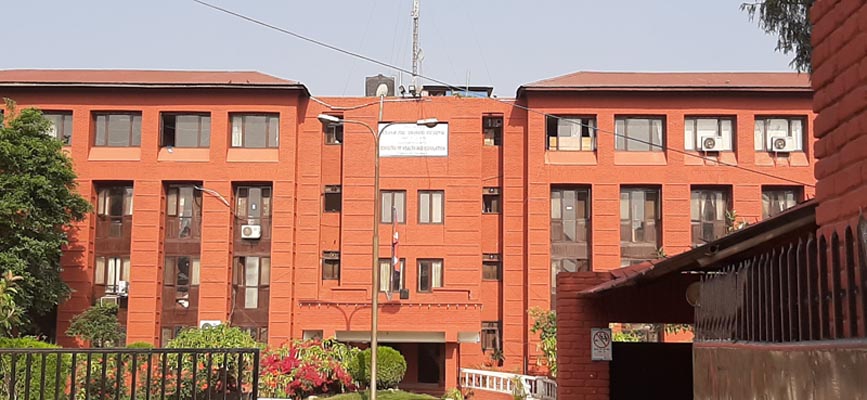Drastic steps planned to prevent outbreak
- It’s time to act, not plan: Critics
Kathmandu, March 12
A day after the World Health Organisation labelled COVID-19 as pandemic, the government today made public its strategy to prevent and control the disease, such as stop flights, issuing tourist visas, lock down pocket areas and seal borders.
However, experts say the government should not just announce plans, but act.
As per the plan unveiled by the Ministry of Health and Population, the government plans to completely halt flights to and from affected countries. It will seal border points and only allow import/export of essential goods. The government also plans to lock down pocket areas, including wards, villages, municipalities, districts and even provinces.
Other measures include mobilising maximum human resources, logistics and technology in all hospitals and health centres across the country and putting in place mobile health centres, if need be.
“These are our plans. We will take a decision to implement these in a day or two after assessing the situation,” said health ministry Spokesperson Bikash Devkota.
However, experts say the government is devising plans at a time when concrete actions should have been taken. This shows how complacent the government is, they add.
Nepali Congress lawmaker and former health minister Gagan Thapa said Nepal could not sit smugly, thinking the pandemic would not reach Nepal when it had already affected more than 110 countries. He suggested taking harsh decisions, such as immediately halting visa issuance, shutting down airports and border points and not just making plans.
“Since the government does not have the capacity to quarantine all those entering Nepal, it is better we immediately close down entry and exit points for the time being,” said Thapa.
Referring to India’s decision to suspend all visas, barring a select few categories, for a month to halt the spread of COVID-19, Thapa said Nepal should follow suit. “I have not been able to figure out what is prompting the government not to act,” said Thapa.
Others said the government should not feel convinced that Nepal was free of coronavirus just by conducting around 500 tests.
Former director at the Epidemiology and Disease Control Division Baburam Marasini said early detection was a must for controlling damage. And for early detection, the government must have a robust surveillance system, which it does not have, said Marasini. “The earlier you detect, the earlier you isolate those infected and break the spread cycle,” he said.
He said the government should have conducted at least 3,000 tests by this time by collecting samples from around the country by mobilising teams at clinics and hospitals. He suggested that the government should test at least 150 random samples daily from across the country from people suffering from pneumonia or other respiratory problems.
“How can we be convinced the virus has not entered Nepal without conducting tests?” asked Marasini. “The government wasted two crucial months. The government does not act but wastes time in meetings and planning.”
Marasini also said the government had not yet acted on motivating, training and assuring security to frontline health workers.
Referring to how all the doctors and nurses had fled and only a handful had remained during Ebola outbreak in Liberia, Marasini said the government must be prepared for all possible scenarios.
According to WHO statistics, the disease has so far infected more than 124,000 individuals in 118 countries, with more than 4,600 deaths.






